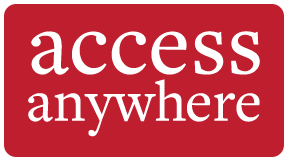How to search for articles
The Steps:
- Find a database by browsing the list here or from the Databases link on the library homepage.
- Click on the link to get into the database
- Search the database for articles
How to access an article
Not all articles are available full text! If an article isn't available full text through a database...
- Use Get it! Cornell.
- If there is no "Get it! Cornell" link/button, search on the title of the article or book in the search box on the library homepage.
- If you cannot locate the article, Ask a Librarian!
Recommended for Soviet History Secondary Source Articles
-
Historical AbstractsCovers the history of the world (except United States) since 1450. Very strong for Russian and Soviet history. Use "Get it Cornell" to find the full text of an article.
A sample search which has two elements--
1. At the top of the Advanced Search screen
Use subject words
OR is a way to include synonyms for the same term:
2. Scroll down a bit lower and add dates. Don't be too narrow. This is not the date the article was published in; it's the dates/time period the article focuses on.
More Russian Culture & History Databases for Articles
-
American Bibliography of Slavic and East European StudiesProvides information on East-Central Europe, Russia, and the former Soviet Union. Some of the many subjects covered include: anthropology, culture & the arts, economics, education, and geography. Sources indexed include journals, books, dissertations, online resources and selected government publications published in the U.S. and Canada. Coverage ranges from 1939-present.
-
European Bibliography of Slavic and East European Studies (EBSEES)Contains bibliographic citations to scholarly articles, books, etc, relating to Eastern Europe, Russia, and the former Soviet Union. The cited materials were published in the following West European countries: Austria, Belgium, Finland, France, Germany, Great Britain, the Netherlands, and Switzerland, between 1991 and 2007.
-
Russian Academy of Sciences BibliographiesCovers the social sciences and humanities with topics as diverse as archaeology, economics, history, law, linguistics, literary criticism, philosophy, political science, religious studies, and much more. The database includes citations and abstracts of journal articles, books, manuscripts, and dissertations published primarily in Russia, the republics of the former Soviet Union, and countries in Eastern Europe from 1986 to the present, with two to three updates per year. Original script display is available for journals published in Cyrillic.
-
Sociology Source UltimateAn expanded version of SocINDEX, including greater coverage of peer-reviewed journals, international resources and open access titles. Provides citations and direct links to the texts of journal articles, book chapters and conference proceedings, some as far back as 1880. Comprehensive coverage encompassing sub-disciplines and related areas of the social sciences, including labor, crime, demography, economic sociology, immigration, ethnic, racial and gender studies, family, political sociology, religion, development, social psychology, social structure, social work, socio-cultural anthropology, social history, theory, methodology, and more.”
-
Proquest Social Science PremiumThe ProQuest Social Sciences Premium Collection combines our discipline specific collections in politics and sociology, with powerful resources that cut across the entire spectrum of the social sciences. This Collection enriches the discipline by providing more coverage on applied social sciences, criminal justice, education, linguistics, and language behavior.
Access Anywhere for remote access
Access Anywhere is a bookmarklet that lets you quickly authenticate as a CU person, when you're off-campus. This allows you to access databases.


